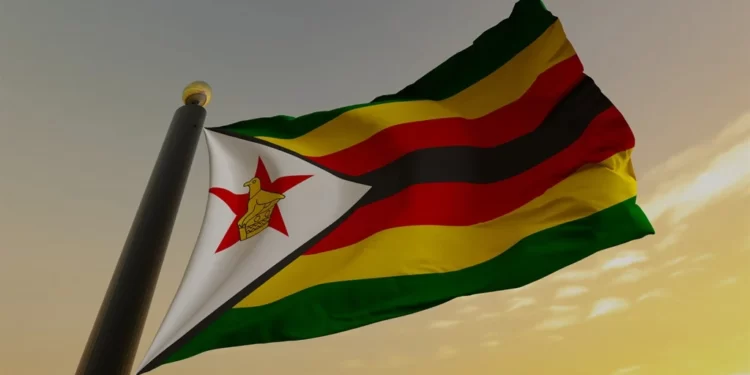Zimbabwe Enhances National Diaspora Policy to Boost Economic Contributions
In a strategic move to strengthen its engagement with the diaspora community, Zimbabwe is actively reviewing its National Diaspora Policy. This initiative aims to empower citizens living abroad and encourage their meaningful participation in the nation’s socio-economic development.
During a recent workshop, the Deputy Chief Secretary for Policy Analysis, Coordination, and Development Planning in the Office of the President and Cabinet, Willard Manungo, underscored the vital role the diaspora plays in driving economic growth.
He stated, “The review of Zimbabwe’s National Diaspora Policy also targets to empower the diaspora community to realise all business and investment opportunities arising in their motherland.”

This emphasis on empowerment reflects a broader commitment to ensuring that the rights and interests of Zimbabweans abroad are safeguarded while they contribute to national development.
The workshop also echoed President Emmerson Mnangagwa’s vision that “nyika inovakwa nevene vayo,” “ilizwe lakhiwa ngabanikazi nalo” or “the country is built by its own people.”
Manungo reiterated this sentiment, stating, “The participation of the diaspora community in national development programmes and individual entrepreneurial initiatives fulfils this call.”
By fostering such participation, the revised policy seeks to create a comprehensive framework that facilitates the diaspora’s involvement in socio-economic initiatives.
Manungo explained that this policy review includes formal acknowledgment of the diaspora’s contributions.
He noted, “This entails formal acknowledgement and recognition through creating the pathway for more significant and sustainable contributions by the diaspora community to the country’s socio-economic growth.”
By advocating for broader participation in investment beyond traditional remittances and philanthropy, Manungo highlighted the diaspora’s readiness to collaborate with those still residing in Zimbabwe.
Moreover, he pointed out that effective engagement from the diaspora is crucial for achieving the country’s Vision 2023 goals.
He asserted, “The reflection in the National Diaspora Policy of greater diaspora participation in national development challenges us to improve engagement and interaction with the diaspora community.”
This proactive approach suggests a commitment to integrating the diaspora into national planning initiatives, thereby enhancing their contributions.
In an effort to ensure the National Diaspora Policy remains relevant, Manungo proposed establishing a continuous monitoring and evaluation mechanism.
He explained, “This will allow for timely interventions in the process,” ensuring the policy evolves alongside the changing needs of the diaspora community.
In addition to these developments, the workshop underscored Zimbabwe’s leadership role in regional initiatives.
Project Coordinator for the International Organization for Migration (IOM) Zimbabwe, Dr. Emmanuel Quarshie highlighted the importance of diaspora engagement during the discussions. He stated, “We follow the three E’s: engage, enable, and empower the diaspora.”
Quarshie emphasised that Zimbabwe’s diaspora, both within the Southern African region and abroad, represents a significant resource for investment and knowledge sharing.
Quarshie noted, “If we follow the statistics, we will realise that Zimbabwe has most of its diaspora residing in the region, but also outside, which is quite a huge resource.” The workshop’s objective was to refine Zimbabwe’s National Diaspora Policy to align with broader regional efforts aimed at enhancing diaspora engagement.
Reflecting on past collaborations, Quarshie mentioned, “In the past, we’ve been able to support the government of Zimbabwe with initiatives like retaining homes and temporary certificates.”
He stressed the need for practical implementations of policy, noting, “Most often than not, we have policy documents that come in a very nice shape, but in terms of implementation, they don’t really go far.”
He also recalled the 2021 Migration Dialogue for Southern Africa in Maputo, where member states adopted the Maputo Declaration for Diaspora Engagement. Quarshie expressed optimism about Zimbabwe’s leadership in this initiative, stating, “We are happy to see Zimbabwe as a key leader at a national level.”
Furthermore, he announced plans for Zimbabwe to host the next Migration Dialogue for Southern Africa in the third quarter of next year, which he believes will enhance the country’s efforts in engaging the diaspora.
Quarshie highlighted the importance of comprehensive policy, stating, “This policy document will capture the relevant areas where the diaspora, the government, and other partners find it important to implement.” He called for involvement from all government departments to ensure the successful execution of the policy.
In discussing ongoing regional initiatives, Quarshie addressed the South Africa operation, which facilitates labour exchange with countries like Rwanda. He noted, “This is one of the golden practices that IOM is reporting almost everywhere,” emphasising that such initiatives strengthen regional integration and support the African Union’s Agenda 2063.
In summary, the workshop in Bulawayo not only reflects the Zimbabwean government’s commitment to fostering inclusivity but also enhances the contributions of its diaspora. Manungo encapsulated this sentiment, stating, “Government recognises that the success of our National Diaspora Policy is underpinned by President Mnangagwa who champions inclusivity that leaves no one and no place behind.”
The revised National Diaspora Policy aims to improve economic conditions in Zimbabwe while providing a structured framework for Zimbabweans abroad to play an active role in their homeland’s development, solidifying their status as essential partners in national growth.
#News in Bulawayo #News in Zimbabwe Artist Arts BCC Bulawayo Bulawayo City Council Bulawayo economy Bulawayo industry Bulawayo news Bulawayo Police Bulawayo Water Bulawayo Water Crisis Bulawayo Women entrepreneurship Business Women Cholera Community Culture Currency Drug Abuse Drugs Economy Farmer Farmers Farming Informal Sector Informal Traders Mining MSMEs Music News in Bulawayo News in Zimbabwe Police Police in Bulawayo Vendor Vendors water Water Crisis Water Shortage water supply issue Women entrepreneurship ZESA Zimbabwean economy Zimbabwe news Zimbabwe water crisis ZRP
Join us for all News in Bulawayo and Bulawayo News in Zimbabwe.












